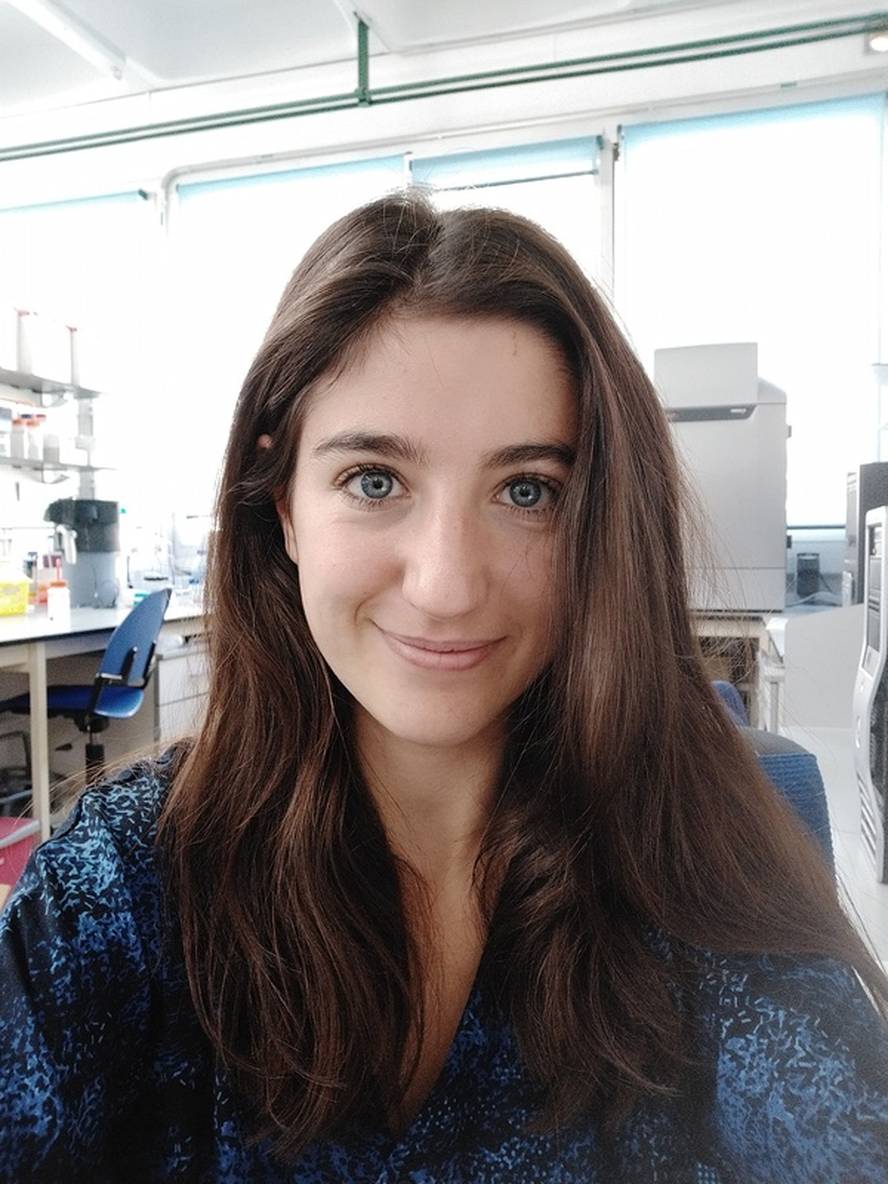“The aim is to use magnetotoxic bacteria against cancer”
Alicia Gascón Gubieda wears the white coat for work. In fact, I already imagined in a lab with a gown and working with specimens and microscopes. "I have always liked biosciences and, in choosing university studies, I hesitated between biology and biochemistry. But above all. I wanted to learn small things -- molecules, cells. I also talked to people, and they told me that biochemistry was more in the lab," he said. He opted for biochemistry.
He does not deny that he had a great time in college and that he liked the degree. In addition, he had the opportunity to go to study in Canada: "It was a very good experience. But there's a big difference between the local level and the local level. In general, studies in Spanish universities are more difficult. Then I was in England, and the same thing: here the level is higher. That on the one hand is very good, but on the other hand, we have to spend more time learning." However, the experience was very enriching and recommends everyone go to study abroad.
Besides having fun, of course he learned. In fact, he went to the University of Birmingham for a master's degree and, once completed, he graduated from Newcastle. Now it is back in the UPV: "Before I did the PhD, I got really wet and when I finished I had to move again. And I didn't want to go to a new place, to start from scratch. In addition, there was a pandemic and it was difficult to get anywhere."
Magnetotoxic bacteria against cancer cells
So he went home. She's now at the UPV/EHU, hired by the university, and she's doing research in the field of cell biology, which was her thesis. Specifically, they work with magnetotoxic bacteria: "These bacteria produce magnetic nanoparticles. And the goal of our research is to use these bacteria against cancer. I, for example, research what nanoparticles do when they're inside the cell and how they interact with cancer cells."
They investigate solid tumors, especially very internal tumors in the body. "Because particles are magnetic, we can apply a magnetic field from the outside of the body, which can influence the inside of the body. That's why it's especially interesting for these kinds of tumors, like brain tumors or colon tumors," he says.
Although he knows that his work can bring great benefit, he acknowledges that it is sometimes also disappointing, because good results are not always achieved. At the moment, however, it is very pleased that research is on the right track. In addition, they have a good atmosphere among team members and that also helps. In the research being carried out, there are researchers from different fields, and that is really enriching. "Sometimes it's hard for us to understand," he said, "but I learn a lot from others."
However, there are other kinds of difficulties that can be easily solved and are therefore more absurd. "There are few resources in science and it's hard to get more money. But, for example, when I did the master's degree in England, I asked for the scholarship, and in June I knew where I was going to start in September. In our department we have a girl, the master who finished in June, then applied for the scholarship and is now with us without knowing whether she will receive the scholarship or not. These kinds of things can be fixed smoothly and make life easier for the researcher."
Nor does the road seem easy, but, despite the difficulties, he wants to continue working with a laboratory.







